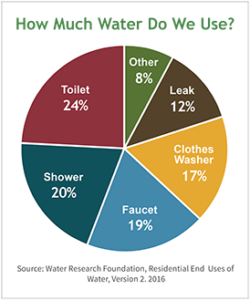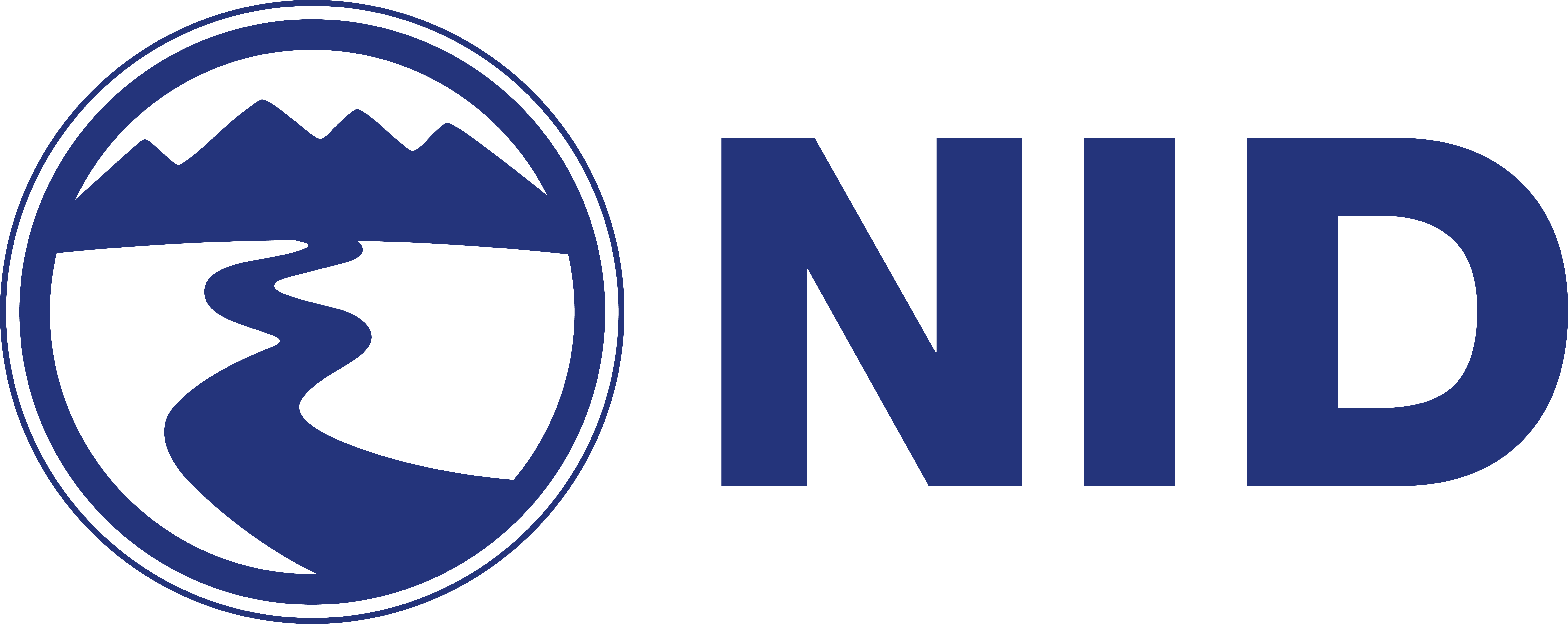Water Use Efficiency
Nevada Irrigation District encourages wise use of water. Conservation and water use efficiency is important to preserving our precious water resources. Water is needed for drinking water, household use, growing food, commercial and industrial uses, groundwater recharge and the environment.
Indoor Residential Water Use:
Use less water with daily tasks. Turn off the faucet while brushing your teeth, shorten your showers, and wash full loads in the dishwasher and washing machine. Tips for Water Efficiency

Check for leaks in the house and outside. Toilets are the #1 household leaks. Check your water meter periodically when all appliances are turned off to see if the meter is still running. If the meter numbers are increasing when all appliances and irrigation is off, check for leaks. Repair leaks as soon as possible. How To Detect A Water Leak
Check the toilet flapper inside the tank to see if it is properly situated. Use a few drops of food coloring or a dye tablet inside the tank, and then in a few minutes, check to see if any color makes its way into the toilet bowl. If so, your toilet tank flapper or another part may not be working properly and may need to be replaced
Use an aerator on faucets and showerheads to achieve the same performance while saving water
Replace inefficient appliances with “Energy Star” high efficiency appliances. The following is a list of California high efficiency standards for household appliances:

Toilets 1.28 gallons/flush
Showerheads 2.2 gallons/minute
Faucets 2.2 gallons/minute
** Measure Your Water Use Calculator ** Click on the link and answer the questions to find out how much water your home uses and how to save water, energy and money.
Outdoor Residential Water Use:
Typically, 40- to 50 percent of household water is used outdoors. There are many ways to easily reduce outdoor water use, saving time, effort and money while providing benefits to the natural environment.
Conserve water use by planting drought tolerant or native plants that require minimal to no water.
Typically native seedlings may need light watering until they mature and become established. There are many plants adapted to our climate and area for beautiful variety of garden types.
Be sure to check out our Summertime Sprinkler Checklist. Use this checklist as you turn on your sprinkler/drip systems to ensure proper water use!
- Water Wise Landscaping
- Water Efficiency Landscaping Tips for Summer
- List of Local Drought Tolerant and Native Plants


